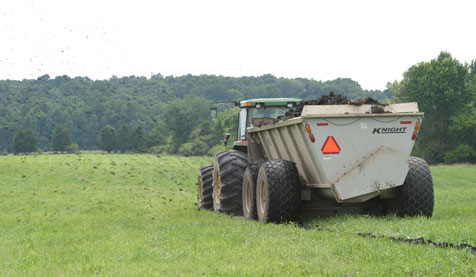In 2003 the Virginia General Assembly amended the Code of Virginia to give local governments more oversight over biosolids recycling within their jurisdictions (Section 62.1-44.19:3 of the Code of Virginia).
State regulations were then approved authorizing each county to pass a local ordinance and enabling it to assign an individual to monitor the application of regulated biosolids within its boundaries. Under a state-approved ordinance, a local monitor is trained by the state and is permitted to test and monitor the land application of biosolids to ensure compliance with all applicable laws and regulations. Monitors may also order the abatement of any violation of state regulations.
Localities that have local ordinances cannot enforce more restrictive conditions on the land application of biosolids than already exist in the state program. State law allows the Virginia Department of Environmental Quality (DEQ) to collect fees from land appliers, based on the amount of biosolids applied to farms or forestland. These fees are used to reimburse local governments that choose to provide local oversight and monitoring and to support the cost of DEQ oversight of land application.
In 2015, the General Assembly approved legislation that would create a similar program for industrial residuals — organic waste products from meat/food processing plants and paper mills.
House Bill 1364, introduced by Del. Christopher K. Peace (R-Mechanicsville), and a companion bill, SB 1413 introduced by Sen. Rosalyn Dance (D-Petersburg), passed the General Assembly unanimously.
“Many residents (in my district) depend on wells for water so it is vital that we take measures to protect our water resources. The biosolids monitoring program has worked successfully for many years and it was the right thing to do to expand local monitoring to include industrial residual waste,” Del. Peace said.
This legislation, like the existing biosolids monitoring ordinance language, allows local governments to provide for greater testing and monitoring of the land application of industrial residuals, and to receive reimbursements for activities associated with monitoring activities.
Del. Peace said, “we must guarantee the citizens of the Commonwealth that land application of industrial sludge is safe and monitored for potential impacts by local officials.
